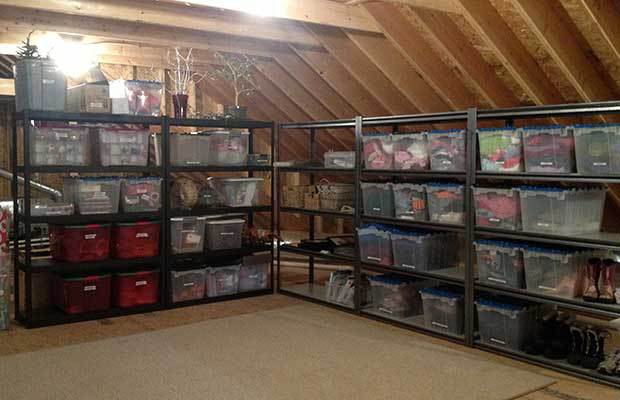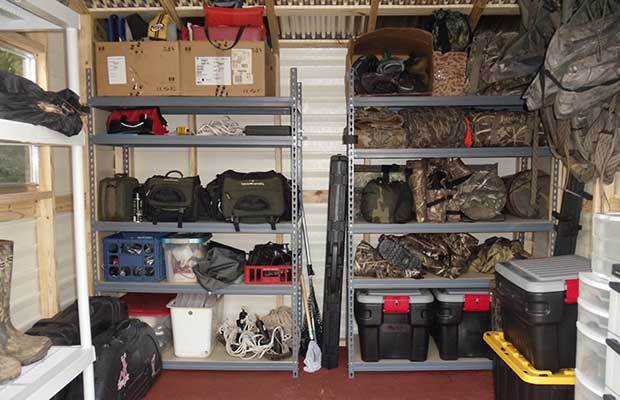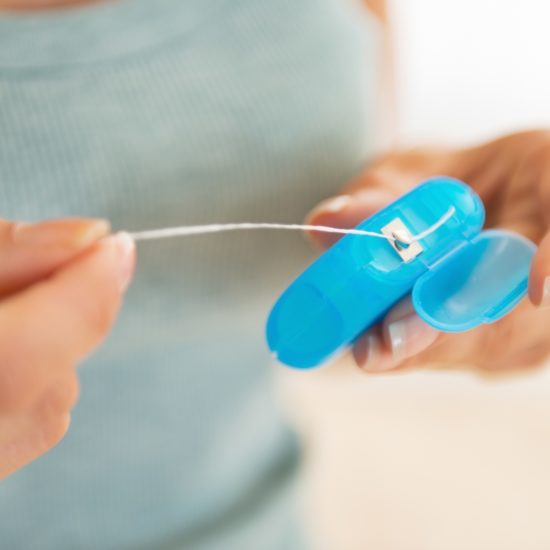
Since I started prepping officially I have made quite a few purchases. Some of these have been incremental, single purchases and some have been raids of the local Walmart or Sam’s Club to buy a ton of items in one trip. When I do get to make trips like this I usually come out of the stores with bags of items and have to put them somewhere.
In the past I would try to incorporate my prepping supplies into the rest of my household items thinking that by doing this I would enable a good rotation plan. If you add 12 packs of batteries into the battery drawer you will ensure they are used and never expire or at least that was what I thought. I did this with things like batteries, hygiene items and first aid supplies but then I went to look for batteries for a GPS I bought several months later only to find that we were almost completely out. My kids had gone through a ton of double AA’s over the summer playing their Wii.
Then I went to audit the bug out bags and found other problems. In each bug out bag I had a small clear plastic bag that contained the basic hygiene supplies so that if we were forced from our home we could clean up should the opportunity present itself. I had travel size toothpaste, shampoo, hand sanitizer, toothbrushes and other minor items that would just help you feel like a human again if you had been without a shower for a while. Three of the bags were missing items that had been pilfered throughout the year for camping trips, vacations and out-of-town travel. I was starting to see a problem with my plan.
I figured on buying a ton of prepping supplies and then checking that box off my big prepping checklist that I had. Once I bought these sundry items I figured I was good, but I slowly remembered due to this reinforcement that I was pretty much the only person who was thinking about supplies like this in my family.
After that I began to hide all of my prepping supplies. Not really, but I began to take them out of circulation so they wouldn’t disappear without my knowledge. I put a bunch of supplies in a large bin and tucked it safely away behind a lot of other things like wrapping paper that was reserved for the holidays, decorative centerpieces and Knick knacks that almost any home has. My wife knew about these supplies so that if I wasn’t around she could make use of them, but keeping them out of the general population of household items ensured they didn’t get used.
One day my wife told me we were out of pain medicine and naturally this occurs when she has a screaming headache. She asked me if I had any, knowing that I had planned for the apocalypse like a good prepper and of course I did. I didn’t want to dig into my stash though. Not because I wanted my wife to have any pain, but I didn’t want to have to resupply the aspirin or Motrin or whatever she needed, but naturally I dug out my box and grabbed her the medicine she was asking for.
It was like a trip down memory lane for someone who doesn’t have a very exciting life. I opened the box to see the items I had stored and smiled to myself a little for being so darn smart to have thought of this in the first place. About that time I looked at the expiration date on the Tylenol and realized it was expired by a year. I know that expiration dates do not render medicine bad or ineffective, but still I wanted to have the freshest supplies for my family so I needed to go back to the drawing board.
Organized so that you know where things are
Organization is an important part of prepping to avoid some of the problems I mentioned above but primarily it helps you to know where your supplies are. Have you ever purchased anything related to prepping and then couldn’t remember where you put it? I have done this before and almost always find it, but if time was of the essence, looking around the house for that crucial piece of gear is not what you need to be focused on.
The problem usually comes down to storage space. If you have a ton of storage space in your home, like a completely empty basement or garage, no problem. If you are like a lot of people and shoving food under the bed you have to think about your prepping organization plan a little differently. I wish I had a basement that I could line with shelves and keep all of my supplies, food and tools in an easy to access place, but I do not.
When space is at a premium, it helps to group like items together in storage bins so you can keep track of what you have and for perishable items, rotate stock. All those prepping supplies hidden in the back of the closet were fine but I neglected to remember to rotate things we did use like medicine, vitamins and batteries. Almost everything else in there, because it was stored in a climate controlled environment would last for decades without any problem

A place for everything and everything in its place.
Organized so that others know where things are
Organization is something that my wife and one daughter have in their DNA. Actually, if I gave my daughter a pile of all of our prepping gear, enough time and plastic storage totes, she would have it all organized, notated and inventoried. Wait, now that I say that…
Seriously though. It isn’t just enough to go on your supply runs to Walmart and drop a couple hundred dollars and hide it away. Your family needs to know where to turn if you aren’t there and they need something. Hiding supplies in your desk drawer isn’t a system. You should have a designated place for prepping supplies or maybe several but the supplies should be labeled and your family should understand that some things are not to be used. It helps to start this when you are getting started prepping but can also be changed even if you have been prepping for years. All it takes is some spare time and a plan.
I have broken my supplies down into categories:
- Food
- Shelter
- Security
- Hygiene
- Sanitation
- Communications
- Lighting
Food is the easiest because we do eat on this every day, it has a place already (the pantry) and I don’t worry about anyone taking food because it has to be rotated. I do have places for freeze-dried food and MRE’s because those are not part of our short-term storage.
The other items are located in bins in various places that my family knows about.
Organized so you can rotate items in your storage
There are some items you don’t have to worry about rotating. For example in the hygiene box I have soap, shampoo, toothpaste, combs, razors and a lot of other things. We don’t need to rotate any of these supplies because they will last decades provided the storage location is free from heat or moisture.
Items like batteries last the longest in cool (not refrigerated) spaces so I wouldn’t want these to get stored in an out building. They should ideally be rotated too but if stored in their original sealed plastic they will last a very long time. Vitamins should be rotated, so should medicines and one way to do this is to keep your rotatable items in a separate container. When you go to the store to purchase new medicine, it goes in this container and you take out something with a closer expiration date. Instead of throwing everything in the same drawer, this discipline will make it more obvious that you need to use the first in first out items. It also helps that your spouse is on board with this plan.
It might seem easier to shove everything into a big box and forget about it, but a little organization will help you and your family with knowing what you have, keeping their intended use in the front of your minds and ensuring you can find it quickly when you need it.
What organization ideas or practices do you use in your prepping storage efforts?




















